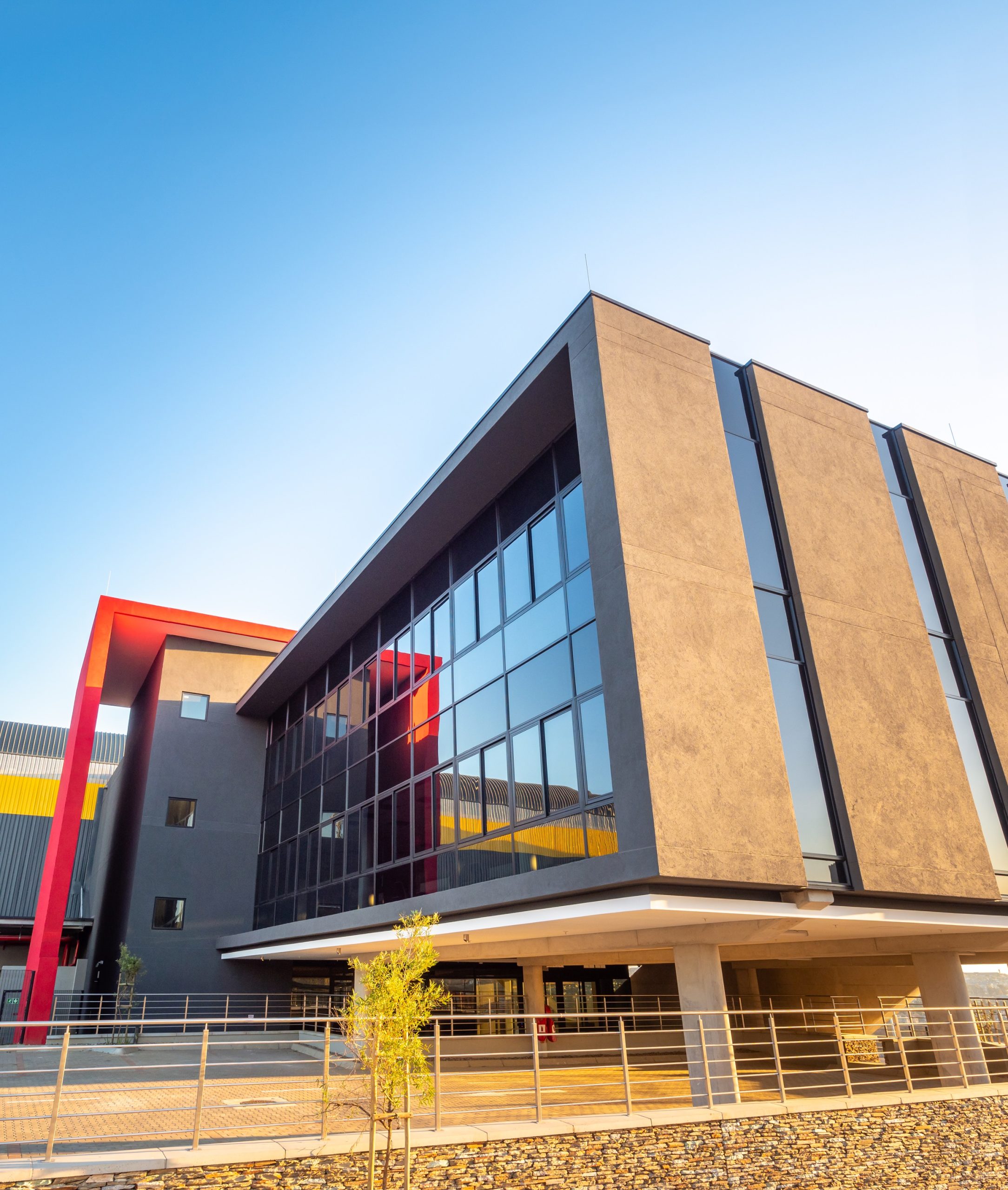The new DHL Express Service Centre in Waterfall City is a prime example of modern construction that harnesses the functionality and aesthetic appeal o
The new DHL Express Service Centre in Waterfall City is a prime example of modern construction that harnesses the functionality and aesthetic appeal of concrete. This tenant-driven project, developed by SOM for Portimix Pty Ltd and used by DHL Express, showcases a blend of office space and a substantial warehouse, strategically located to optimise logistics operations.
Abbeydale Building & Civils undertook the construction, with Empowered Spaces Architects managing the project. EMArchitecture provided the architectural design, while structural design was the forte of Struxit Projects. The project is distinguished by its innovative use of concrete, supplied by AfriSam, which was critical to meeting the high standards set by DHL.
The building’s design is notable for its highway-facing facade that presents a bold, linear impression with wavy concrete columns. These columns, resembling waves, align with DHL’s core business and are visible from one of Africa’s busiest highways, the N1. The office frontage, combined with the functionality of the warehouse, reflects a design that is both aesthetic and efficient. The warehouse was specifically designed for high-volume parcel throughput, ensuring rapid loading and unloading processes, crucial for DHL’s operations. The uninterrupted operation flow was made possible by the by removing all columns within the operational floor and achieving a 47 m clear span within the warehouse.
As a P-Grade building, the DHL Express Service Centre stands out for its superior quality, modern amenities and a striking facade that enhances DHL’s branding. The design also aimed for a timeless appeal, ensuring the building remains fashionable and appealing for decades.
Concrete played a pivotal role in this project, not just in terms of structure but also in aesthetics. The distinctive V-shaped columns were created using custom-designed steel shuttering, requiring a highly flowable concrete mix with a reduced aggregate size to achieve the desired finish. A strut and tie structural system design was implemented to accommodate the exaggerated angles on the slanted column facade. The strut and tie design concept uses the best properties of each structural material. Compression forces are resisted and transferred using concrete, and the tension forces are transferred through the reinforcement steel. The combination of these two properties in the concrete and reinforcing steel enabled the elegant and durable slanted column design of the DHL facade. Slanted concrete columns, along with the external elements of the building, required meticulous planning and execution.
Less obvious, but equally impressive concrete structural element within the building are the book end concrete walls, cantilevering 5 m from the building while still supporting floors from above. The large cantilevers could be achieved by using the mechanism of Vierendeel Action within the concrete wall. The concrete and steel used within these walls were carefully planned and detailed to activate the Vierendeel Action and produce the impressive cantilevering walls.
The structural design technique used within the mentioned concrete elements is not often used in conventional concrete building or designs, which makes the use of the concrete in this building truly exceptional and unique.
The warehouse’s concrete floor was constructed with large panel floors to a FM2 specification, ensuring durability and supporting efficient logistics operations.
The design of the building also focused on energy efficiency and sustainability. The strategic placement of horizontal fins and high performance glass reduced cooling costs and glare, while the potential for solar panel installation aligns with DHL’s sustainability goals. The concrete design was critical in achieving these objectives, with AfriSam providing a tailored mix for optimal performance.
The DHL Express Service Centre in Waterfall City stands as a testament to the capabilities of concrete in modern construction. Its design and execution reflect a synergy between aesthetics, functionality, and sustainability, setting a benchmark for future construction projects in the logistics sector.


COMMENTS